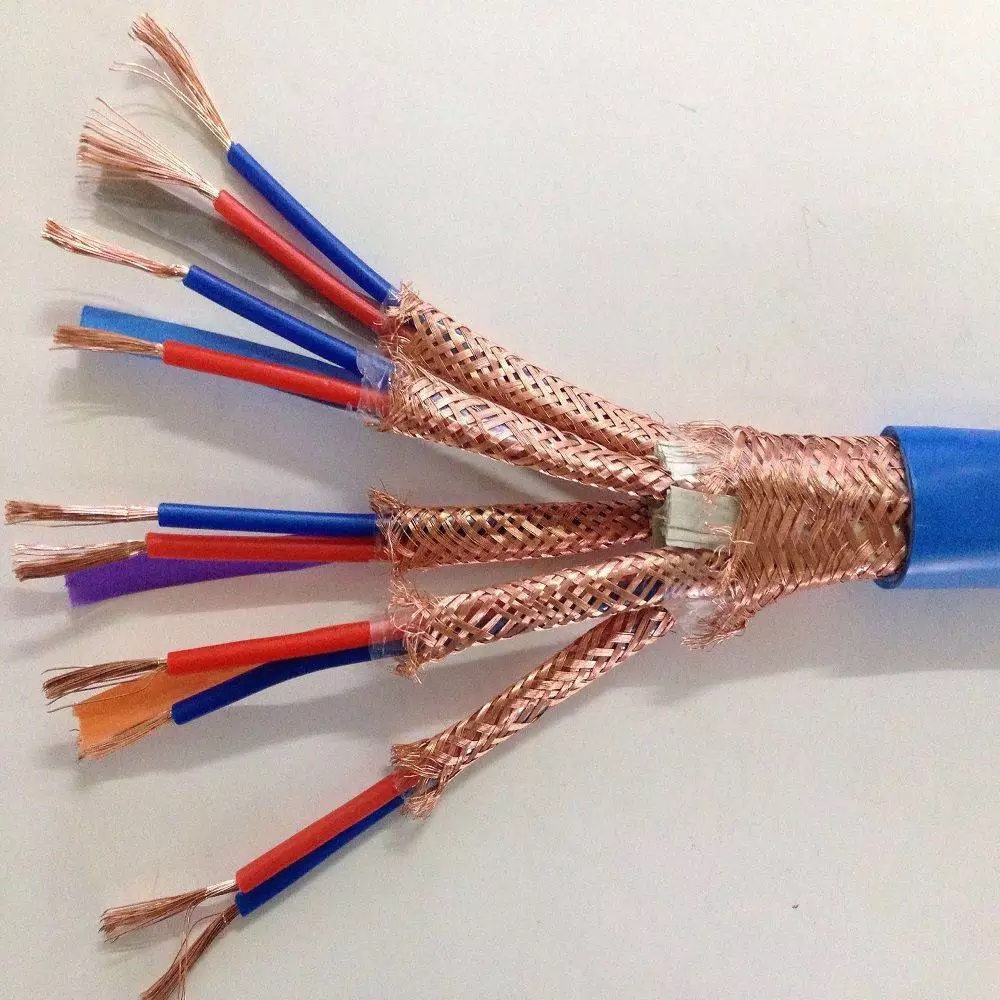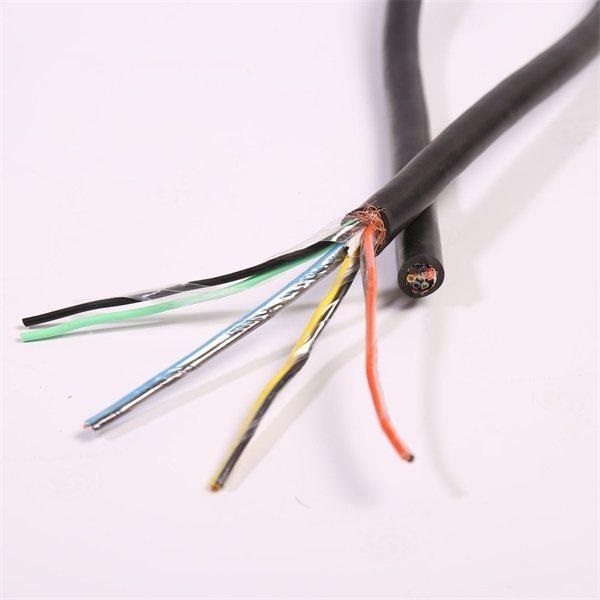Introduction
In today’s interconnected world, maintaining signal integrity is crucial, whether you’re setting up a home theater system or managing an industrial network. One essential component that ensures this integrity is the shielded cable. This article dives into everything you need to know about shielded cables for sale, helping you make informed decisions for your specific needs.
When we think about cables, we often overlook the importance of shielding. However, shielded cables play a pivotal role in ensuring the quality and reliability of our electronic systems. From minimizing electromagnetic interference (EMI) to enhancing overall performance, these cables are indispensable in various applications. So, if you’re curious about why shielded cables are so vital and where you can find them, read on!

What Are Shielded Cables?
At its core, a shielded cable is a type of electrical cable that includes a conductive layer surrounding the conductors inside. This shielding layer can be made from materials like aluminum foil, copper braid, or a combination of both. The primary function of this shield is to block external electromagnetic interference (EMI), ensuring that the signal transmitted through the cable remains pure and uninterrupted.
Definition and Function
Shielded cables are designed to protect signals from external noise and interference. Imagine you’re in a crowded room trying to have a conversation. The surrounding noise makes it hard to hear each other clearly. Now, think of shielded cables as a soundproof booth that isolates your conversation from the chaos outside. That’s precisely what these cables do for electronic signals.
Types of Shielded Cables
There are several types of shielded cables, each designed for different applications:
- Foil Shielded Cables: These cables use a thin layer of aluminum foil as the shielding material. They are excellent for high-frequency applications but can be fragile.
- Braid Shielded Cables: Made with a woven mesh of copper wires, these cables offer robust protection against EMI and are more durable than foil-shielded options.
- Spiral Shielded Cables: Featuring a spiral wrapping of copper tape, these cables are flexible and provide good protection in low-frequency applications.
- Combination Shielded Cables: As the name suggests, these cables use a mix of shielding techniques to offer superior protection and versatility.
Why You Need Shielded Cables
Imagine you’re trying to watch your favorite movie, but the picture keeps glitching because of signal interference. Frustrating, right? That’s where shielded cables come in handy. They protect your systems from EMI, ensuring enhanced signal integrity. Whether it’s for professional audio equipment, industrial machinery, or even medical devices, using shielded cables can significantly reduce noise and improve overall performance.
Protection from Electromagnetic Interference (EMI)
Electromagnetic interference is like static on a radio. It disrupts the clarity of signals and can cause malfunctions in electronic equipment. EMI can come from various sources such as power lines, radio transmitters, and even household appliances. Shielded cables act as a barrier, preventing this unwanted interference from affecting your systems.
Enhanced Signal Integrity
In addition to blocking EMI, shielded cables also help maintain signal integrity. This means that the signals transmitted through the cable remain strong and clear, without degradation over distance. For applications like data transmission and audio-visual setups, this is particularly important to ensure high-quality performance.
Types of Shielded Cables
Let’s delve deeper into the various types of shielded cables and their specific uses:
Foil Shielded Cables
Foil-shielded cables are known for their excellent high-frequency shielding capabilities. The thin aluminum foil used in these cables provides 100% coverage around the conductors, making them ideal for applications where space is limited and high-frequency protection is needed. However, their fragility makes them less suitable for environments where the cable may be subjected to physical stress.
Braid Shielded Cables
Braid-shielded cables are made with a woven mesh of copper wires. This type of shielding is highly effective at blocking EMI and offers better mechanical strength compared to foil shielding. Braid-shielded cables are commonly used in industrial settings where durability is crucial.
Spiral Shielded Cables
Spiral shielding involves wrapping copper tape around the conductors in a spiral pattern. This method provides flexibility and good protection at low frequencies. Spiral-shielded cables are often used in applications where flexibility is important, such as in audio equipment and portable devices.
Combination Shielded Cables
Combination-shielded cables use multiple shielding techniques to provide superior protection against EMI. These cables are versatile and can be used in a wide range of applications, from industrial machinery to high-end audio systems.
Applications of Shielded Cables
Shielded cables are incredibly versatile and find applications across various sectors:
Industrial Applications
In manufacturing plants and industrial environments, machinery and equipment generate significant electromagnetic noise. Using shielded cables ensures that signals remain clear and uninterrupted, allowing machinery to operate smoothly without interference.
Home and Office Use
In home and office settings, shielded cables are ideal for connecting high-end audio-visual equipment or computer networks. They help maintain signal quality for devices such as home theater systems, gaming consoles, and computer networks.
Medical Equipment
In the medical field, precision and reliability are paramount. Shielded cables are essential for ensuring accurate readings and reliable operation of sensitive medical devices such as MRI machines and patient monitors.
Aerospace and Defense
In aerospace and defense applications, signal integrity is non-negotiable. Shielded cables are used in critical systems where any form of interference could have catastrophic consequences.

How to Choose the Right Shielded Cable
Selecting the right shielded cable can feel overwhelming, but it doesn’t have to be. By considering a few key factors, you can ensure that you pick the best cable for your needs.
Consider the Environment
First and foremost, think about where the cable will be used. Will it be exposed to harsh conditions such as extreme temperatures, moisture, or physical stress? If so, durability becomes a key factor. For industrial settings, you might want a braid-shielded cable due to its robustness. For more controlled environments like home or office use, a foil-shielded cable might suffice.
Check the Cable Specifications
Next, you need to check the technical specifications of the cable. Look at factors like impedance, capacitance, and attenuation. These specifications will tell you how well the cable can transmit signals over distance and under different conditions. Make sure the cable meets the technical requirements for your specific application. For instance, if you’re setting up a high-speed data network, you’ll need a cable that can handle high-frequency signals without degradation.
Evaluate the Cost
While it might be tempting to go for the cheapest option, remember that quality often comes at a price. Investing in a good-quality shielded cable can save you money in the long run by reducing maintenance costs and improving system performance. It’s a classic case of “you get what you pay for.” A more expensive, high-quality cable will likely offer better performance and last longer than a cheaper alternative.
Benefits of Using Shielded Cables
The advantages of using shielded cables extend far beyond just protection from EMI. Here are some key benefits:
Improved Performance
Shielded cables help maintain signal integrity, which translates to better performance. Whether you’re dealing with audio, video, or data transmission, shielded cables ensure that your signals remain clear and strong. This means better sound quality, clearer video, and more reliable data transmission. In professional settings, this can make a significant difference in productivity and efficiency.
Longevity and Durability
High-quality shielded cables are built to last. The shielding not only protects against EMI but also adds an extra layer of physical protection. This reduces wear and tear, making the cables more durable. Over time, this durability translates to fewer replacements and lower maintenance costs.
Cost-Effectiveness in the Long Run
Although shielded cables might be pricier upfront, their durability and performance make them a cost-effective choice over time. By reducing the need for frequent replacements and minimizing downtime due to signal interference, they offer excellent value for money. In industrial settings where downtime can be costly, this is particularly important.
Common Misconceptions About Shielded Cables
There’s a lot of misinformation floating around about shielded cables. Let’s debunk some common myths:
Overpricing Myths
Many people think shielded cables are exorbitantly priced. While they can be more expensive than unshielded options, their benefits far outweigh the costs. When you consider factors like improved performance, durability, and reduced maintenance costs, it’s clear that investing in high-quality shielded cables is a smart move.
Misunderstanding EMI Protection
Some believe that all shielded cables offer the same level of EMI protection. In reality, the effectiveness varies based on the type of shielding used. Foil shielding is excellent for high-frequency protection but may not be as durable as braid shielding. On the other hand, braid shielding offers robust protection and durability but might not be as effective at very high frequencies.
Where to Buy Shielded Cables
Ready to make a purchase? Here are some reliable options:
Online Retailers
Websites like Amazon and Newegg offer a wide range of shielded cables with customer reviews to guide you. Shopping online provides convenience and often better prices due to competitive marketplaces. Plus, you can read user reviews to get an idea of how well the cables perform in real-world scenarios.
Local Electronic Stores
Sometimes it’s best to see and feel the product before buying. Local stores can offer personalized advice as well. Visiting a local store allows you to speak with knowledgeable staff who can provide recommendations based on your specific needs.
Specialty Suppliers
For specific needs or bulk purchases, specialty suppliers often provide higher-quality options and expert recommendations. These suppliers usually have a more extensive selection of high-end cables and can offer customization options if needed.
Conclusion
To sum it up, shielded cables are indispensable for anyone looking to maintain signal integrity in various applications. From reducing EMI to ensuring longevity and cost-effectiveness, they offer numerous benefits that make them worth every penny. So next time you’re setting up an audio system or an industrial network, don’t underestimate the value of a good shielded cable!
There you have it! A comprehensive guide on shielded cables for sale that covers all the bases. Whether you’re a tech enthusiast or a professional in need of reliable connections, understanding the importance and applications of shielded cables can make all the difference.
Post time: 2024-09-23
